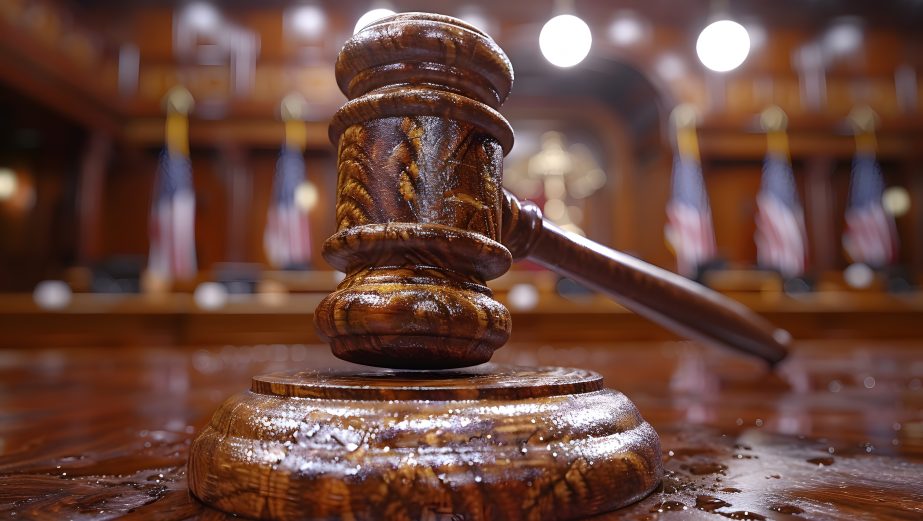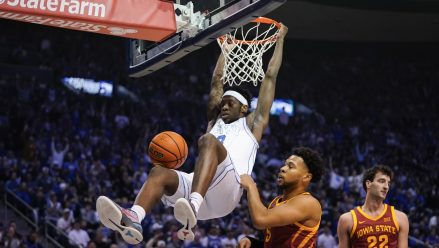Lawyers for Kalshi and the state of New Jersey will present oral arguments before the Third Circuit Court of Appeals next month, as the legal battle over the status of Kalshi’s sports event contracts heats up.
Oral arguments will take place Sept. 10 in Philadelphia at 9:30 a.m. ET. Each side will get 15 minutes to make its case in front of a panel of Third Circuit judges.
Kalshi-v-New-Jersey-Flaherty-Oral-Argument-details-Aug-18-2025The arguments will come just days after the NFL season kicks off, also in Philadelphia, with bets on Week 1 matchups likely to be lucrative for Kalshi — especially now that it has filed to offer bets on spreads, totals, and player props. The Eagles will host the Dallas Cowboys in the first game of the season Sept. 4.
Parties that have filed amicus briefs may be allowed to speak, with the court’s permission. A group of 34 states and 65 tribal organizations previously filed briefs on New Jersey’s side, while a group of former legislators, Kalshi investor Paradigm, and crypto exchange Bitnomial have filed on the side of Kalshi.
An audio recording of the arguments will be posted online “shortly after” the session finishes.
September will be a busy time for Kalshi’s legal team, as it will also have to file its opening argument in its Fourth Circuit Court of Appeals case, attempting to win an injunction that would allow the business to keep offering sports event contracts in Maryland. That argument is due by Sept. 15. Kalshi lost its district court bid for an injunction against Maryland’s cease-and-desist earlier this month.
NJ looks at implications of Kalshi claims
The announcement of oral arguments follows New Jersey’s Aug. 14 response to a Kalshi brief, in which the prediction market laid out its argument that sports event contracts were legal under the Commodity Exchange Act (CEA), and states could not use their own gambling laws to block the contracts from being offered.
New Jersey made arguments about the implications of a world where the CEA supersedes state sports betting laws.
It says that, if gambling products really can be classified as “swaps” — a type of financial product for hedging risk — then every bet that takes place outside of a Designated Contract Market registered with the Commodity Futures Trading Commission (CFTC) would be an unlicensed financial product. This would mean, New Jersey argues, that by adding “swaps” to the CEA in 2010, Congress quietly made casinos, sportsbooks, and even bingo halls a form of illegal financial speculation.
Kalshi-NJ“Either the CFTC did not exempt traditional gambling and sports betting because it does not think ‘swaps’ capture all gambling in the country (as Kalshi claims), or the CFTC is funneling the bingo game at a rural senior-citizen home into its domain (showing the absurdity of Kalshi’s position),” the state says.
Kalshi, for its part, has argued that the preemption of sports betting laws only applies narrowly — to contracts traded by a CFTC-registered market — and has claimed that states exaggerate the implications of its positions.
In perhaps the most memorable line of its brief, New Jersey likened Kalshi to traditional sportsbooks.
“In the end, no matter how much Kalshi likens itself to the Chicago Mercantile Exchange or other derivatives markets, it is no different than any other sportsbook or gambling house,” the state said.
Is Kalshi using sportsbook lobbying tactics?
But a look at Kalshi’s recent moves suggests it may be happy to borrow from sportsbooks’ playbooks, not just in terms of offering similar products, but in how it makes a case for itself to the public.
While legal arguments don’t always match up with PR efforts, it’s worth noting that Kalshi has taken a classic sportsbook line, at least outside of the courtroom.
In a Monday press release announcing the launch of its football over-under, touchdown, and point-spread markets, Kalshi pointed out that its offerings would challenge the $84 billion illegal sports betting market and expand access to a “transparent, regulated, and supervised marketplace.”
“Federally regulated sports trading provides a high integrity, safe, and consumer-friendly alternative to offshore, illegal, and unregulated operators, who still see strong adoption and consistent growth,” the release said.
Besides the word “federally,” those lines would not sound out of place in a sportsbook’s lobbying efforts.
In fact, the $84 billion figure — as well as a stat that illegal sports betting has grown 24% since 2022 — comes directly from research by the American Gaming Association (AGA), intended to encourage state lawmakers to expand legal sports betting.
Kalshi hired former AGA lobbyist Sara Slane this year as its head of corporate development. In July, she told InGame that the majority of Kalshi’s sports customers had moved over from offshore sportsbooks.
Nevada discovery argument continues
Meanwhile, the back-and-forth over whether the lawsuit between Kalshi and the state of Nevada, taking place in the U.S. District Court for the District of Nevada, should involve a discovery process went on. Kalshi argues that the case is a “purely legal question” of federal versus state law, and thus no new evidence is relevant. Nevada argues that Kalshi has already put forward its own evidence, and that the court should not be required to lean only on this version of events.
Nevada moved late on Friday to suspend Kalshi’s motion to have a decision given without discovery. But in a filing published Monday, Kalshi called this move a “diversion” and questioned the timing of the state’s submission.
After the state had argued that Kalshi had been “unreasonable” in not complying with its discovery requests, first made on Aug. 1, Kalshi’s latest filing claimed, “The only unreasonable act here is Defendants’ filing of a Friday night ‘emergency’ motion.”
The state’s discovery requests include asking for all of Kalshi’s communications with the CFTC, its market makers, and CFTC chair nominee (and current Kalshi board member) Brian Quintenz. Kalshi says these are “utterly irrelevant” to the case.





